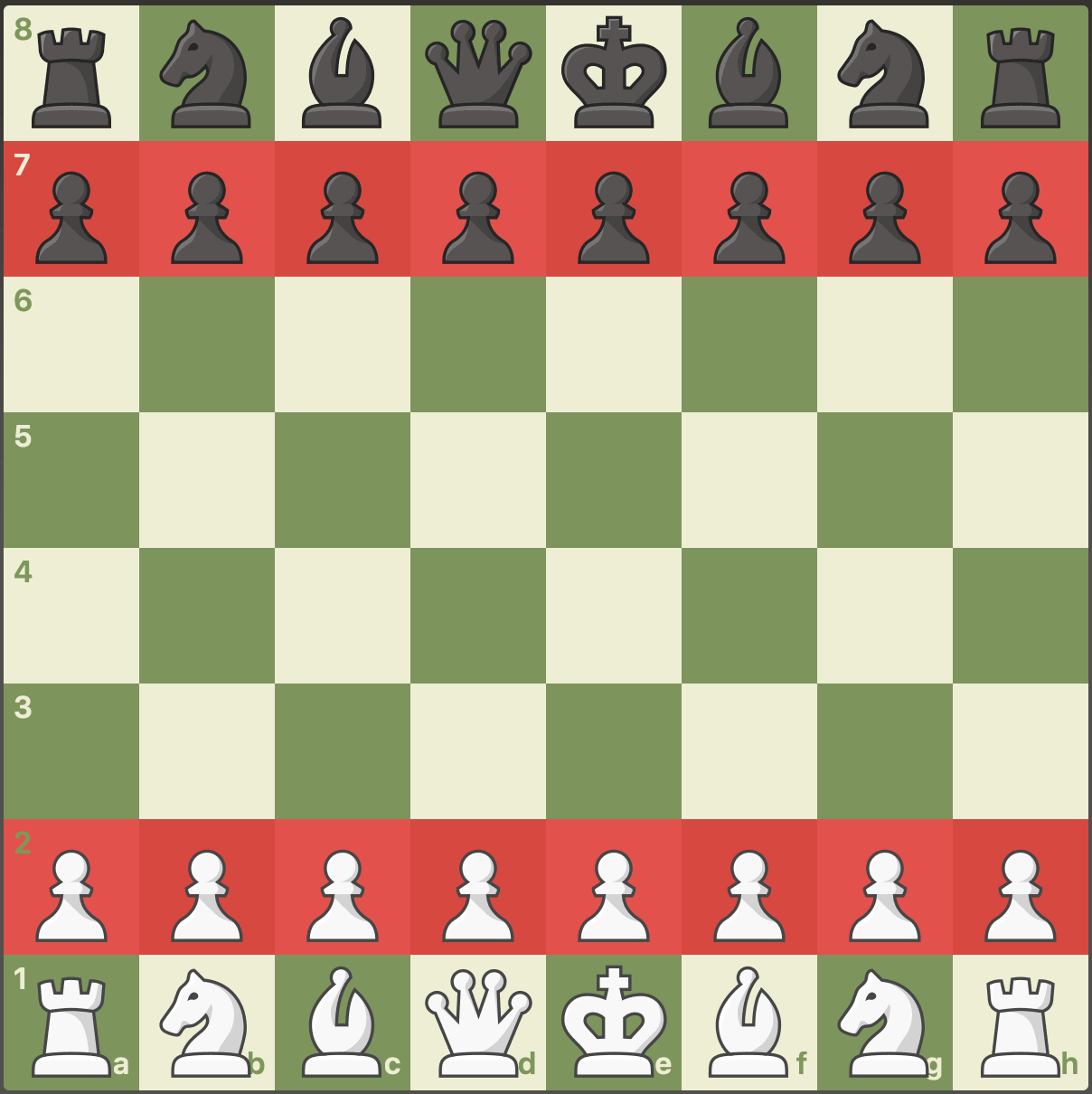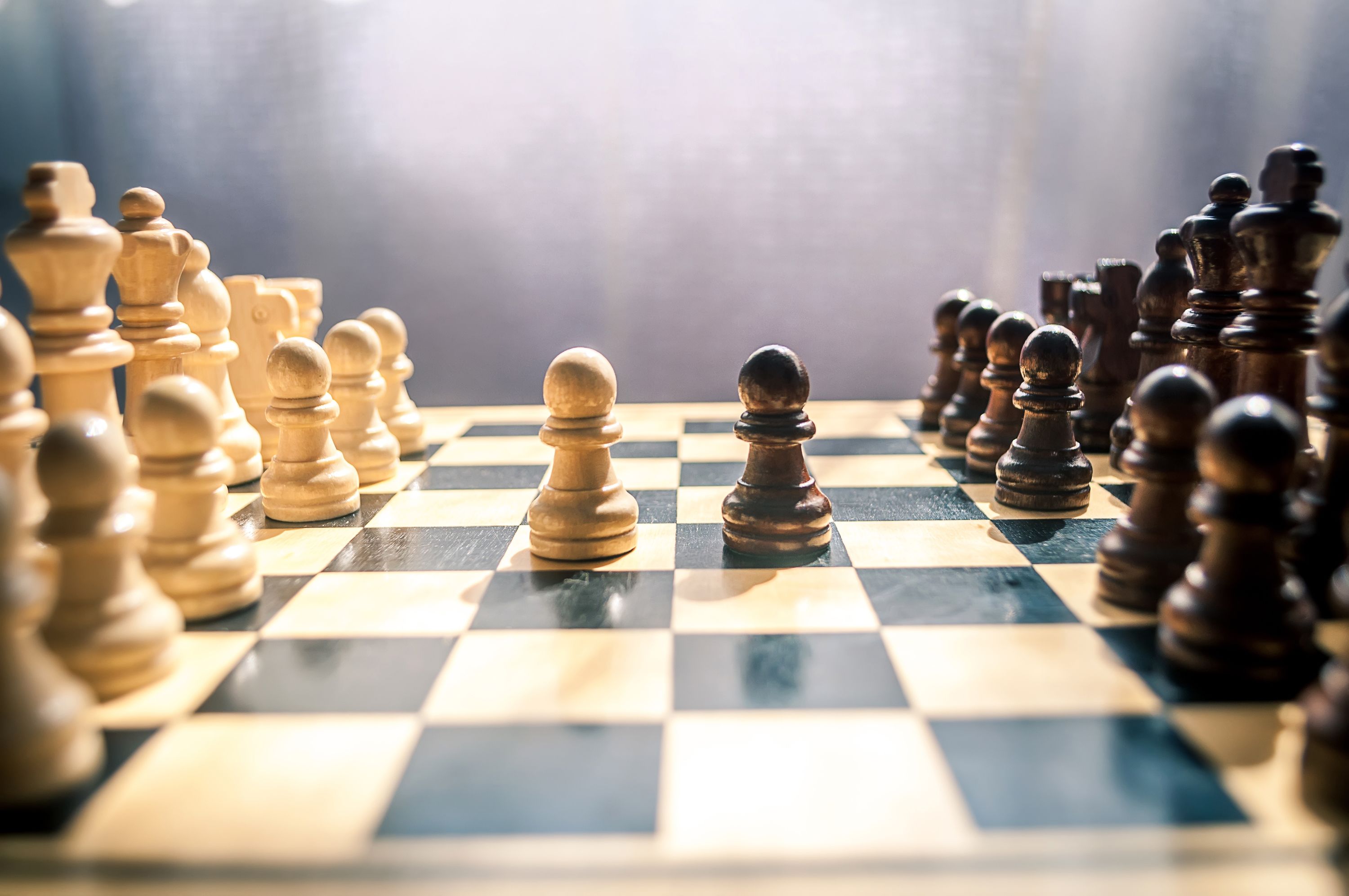Chess Endgame Principles Every Player Must Learn
Wiki Article
Methods for Chess: Opening the Keys to Grasping the Game
Chess methods include a series of techniques critical for success. Understanding the principles is vital for any player. Each phase of the game-- from openings to endgames-- calls for an unique approach. Understanding these elements can cause substantial benefits. The journey does not finish with standard expertise. There are deeper layers to discover, disclosing the intricacies that can genuinely raise one's game. What exists past the surface area of these fundamental strategies?Recognizing the Fundamentals of Chess
While lots of gamers concentrate on sophisticated tactics and methods, comprehending the principles of chess is necessary for anyone seeking to improve their game. The structure of chess starts with the guidelines, which determine how each piece moves and captures. Familiarity with the board's design and item values is important, as it helps gamers assess positions and make notified choices.In addition, understanding standard principles such as control of the facility, item development, and king safety and security lays the foundation for efficient gameplay. Players should find out the significance of preserving pawn structure and recognizing threats, as these components can significantly affect the outcome of a match.

Establishing a Winning Opening Strategy
An effective opening technique in chess is essential for developing an advantageous setting early in the game. Players typically concentrate on crucial concepts such as item growth, control of the center, and king safety and security. Developing items successfully permits higher mobility and tactical chances, while inhabiting the central squares boosts impact over the board.Opening techniques can differ substantially, from hostile lines focused on fast assaults to strong developments that prioritize protection and steady advancement. Experience with common openings, such as the Ruy Lopez or Sicilian Defense, can provide players with an arsenal to attract from and adjust to opponents' feedbacks.
In addition, preserving flexibility in one's opening up strategy is essential, as inflexible play can bring about foreseeable patterns easily exploited by educated opponents. Eventually, a winning opening technique establishes the stage for an effective center game, leading the way for victory.
The Importance of Board Control
Board control functions as a basic aspect of chess method, greatly influencing the result of the game. Effective board control permits a gamer to dictate the rate and circulation of the suit, providing chances for tactical growth while restricting the opponent's alternatives. By occupying crucial squares, particularly in the facility, players can boost their piece movement and create more powerful placements.Controlling the board likewise helps with better coordination among items, allowing tactical mixes and defenses. Chess. This benefit frequently translates into enhanced pressure on the challenger, causing potential errors or miscalculations. On the other hand, a lack of board control can leave a gamer vulnerable, as their items become limited in activity and efficiency
Thus, understanding the art of board control is vital, as it lays the structure for successful maneuvers and lasting tactical planning, inevitably determining the winner in chess.
Methods and Combinations: Finding Hidden Opportunities
Discovering tactics and mixes is essential for gaining a benefit in chess, as it permits gamers to make use of weak points in their opponent's position. Tactical understanding consists of identifying patterns such as forks, pins, and skewers, which can cause material gain or positional advantage. Gamers must frequently scan the board for covert possibilities, examining potential risks and actions.Mixes usually involve a series of steps that you can find out more may originally appear counterproductive but can culminate in a decisive end result. Chess. Compromising a piece to draw a challenger right into a catch can move the game's momentum.
Effective estimation is essential; players have to envision numerous moves in advance to visualize the consequences of their activities. Routine technique of tactical challenges can develop this skill. Ultimately, understanding methods and mixes empowers gamers to seize control of the game, turning apparently average settings right into winning chances.
Endgame Techniques: Securing Your Victory
Mastery of strategies and mixes lays the foundation for success, yet acknowledging exactly how to convert advantages into victory during the endgame is similarly crucial. In this stage of the game, players should concentrate on piece sychronisation and pawn promo. Recognizing key principles such as opposition and regulating key squares can considerably enhance one's chances of winning.Reliable endgame techniques entail streamlining the placement when in advance, trading pieces to minimize the challenger's counterplay, and using the king actively as a fighting piece. Players ought to intend to produce passed pawns that can advance towards promotion, requiring the challenger to draw away sources to prevent them.
Exercising typical endgame scenarios, such as king and pawn versus king, can offer invaluable experience. Finally, maintaining patience and insight during the endgame will usually divide the newbie from the master, as definitive moments can occur unexpectedly.
Examining Your Opponent's Steps
How can a gamer properly anticipate their challenger's method? Examining an opponent's moves is vital for developing a competitive side in chess. Players ought to observe patterns in their opponent's play design, noting propensities such as hostile or defensive maneuvers. By recognizing these patterns, visit the website a gamer can forecast prospective reactions and prepare counter-strategies.Furthermore, acknowledging the opening selections can disclose a riches of info relating to an opponent's recommended strategies. Players need to also evaluate the timing and context of certain moves, checking out the underlying motivations behind them.
Using strategies such as preserving a versatile way of thinking and adapting to shifts in the game can improve a player's capacity to react effectively. Additionally, monitoring their challenger's clock management may supply understandings right into their degree of self-confidence and comfort with the position. On the whole, careful observation and analysis are vital for anticipating and counteracting a challenger's method.
Constant Discovering and Improvement in Chess

Continuous discovering is an essential facet of improving one's chess game, matching the analytical skills developed via observing challengers. Players can enhance their capabilities by studying timeless video games, exploring opening theories, and engaging with literature on innovative strategies. Online resources and chess engines offer vital tools for analyzing past games, permitting players to recognize blunders and improve their decision-making procedures.
Joining competitions and laid-back suits is important for sensible experience, allowing gamers to use new knowledge in real-time circumstances. Furthermore, joining clubs or online discussion forums cultivates a community environment where players can exchange understandings, go over methods, and receive useful comments.
Routinely examining one's own video games and those of higher-rated players aids brighten areas for renovation - Chess. By cultivating a way of thinking of lifelong understanding, chess enthusiasts can continually adapt, progress, and ultimately reach their possibility in this elaborate and fulfilling game
Regularly Asked Inquiries
What Are the most effective Chess Publications for Beginners?
The finest chess publications read the full info here for beginners consist of "Chess for Dummies" by James Eade, "The Full Bonehead's Overview to Chess" by Patrick Wolff, and "Bobby Fischer Educates Chess." These resources provide fundamental approaches and vital expertise for new gamers.How Do I Manage Losing Streaks in Chess?

What Online Platforms Are Finest for Exercising Chess?
Popular on-line platforms for exercising chess consist of Chess.com, Lichess.org, and Net Chess Club. Each offers different functions such as challenges, tutorials, and affordable play, accommodating various ability levels and preferences among chess fanatics.
How Can I Boost My Chess Visualization Skills?
To improve chess visualization skills, one must practice mental exercises, solve puzzles, assess games without a board, and progressively boost the intricacy of positions. Regularly playing blindfold chess can additionally considerably boost visualization capacities.
What Are Usual Psychological Catches in Chess?
Usual psychological catches in chess include insolence, time pressure, and the anxiety of oversights. Players may also succumb to verification prejudice, leading them to ignore better relocations while concentrating on formerly effective methods.Report this wiki page